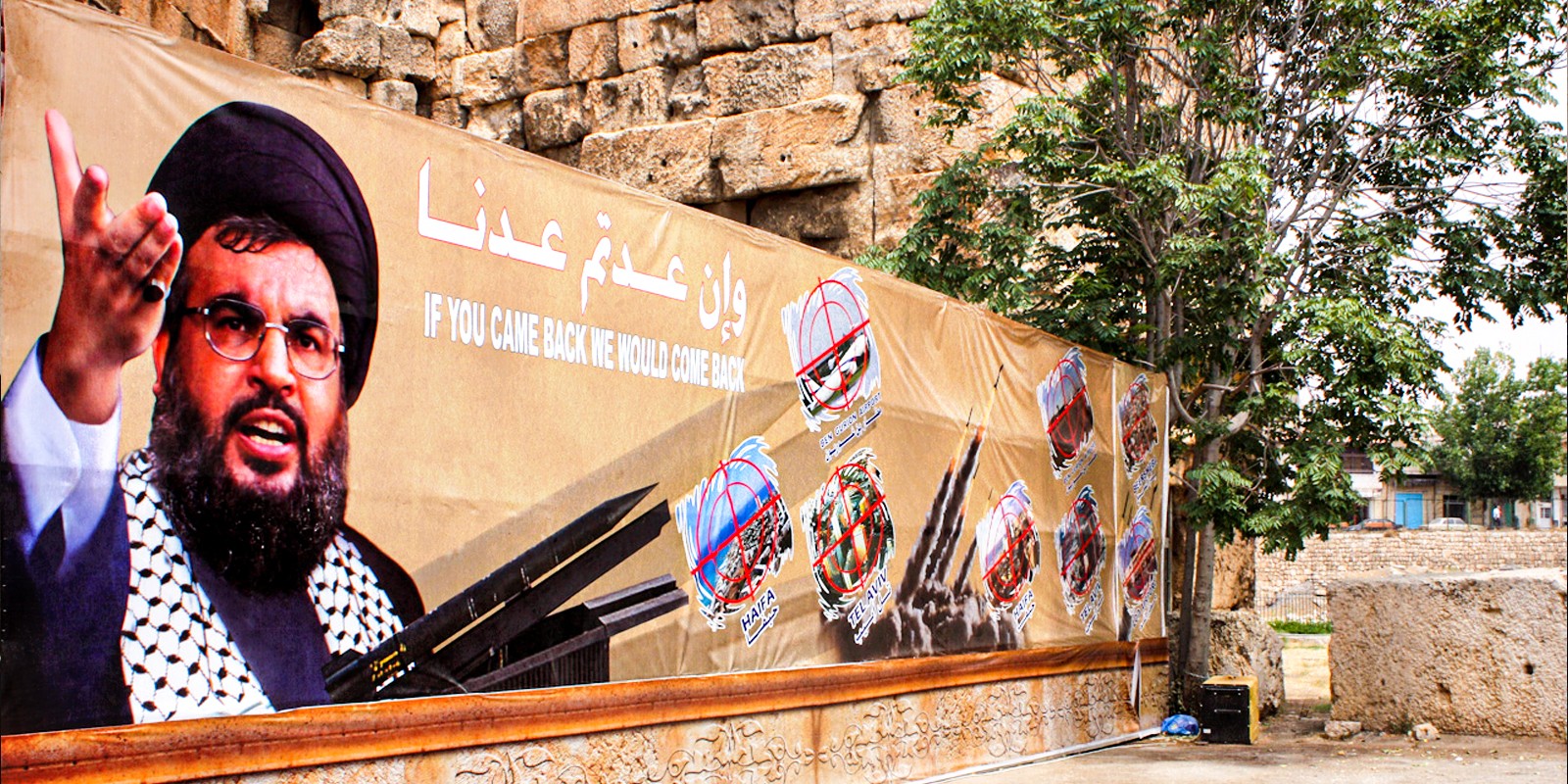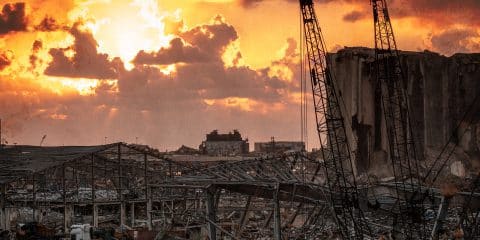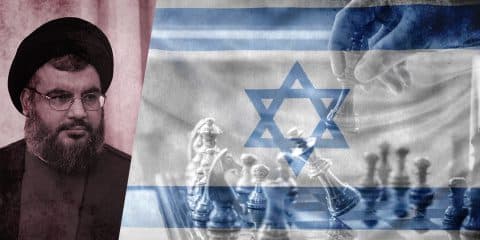One of the issues that must be dealt with before the Iranian nuclear program is removing the threat of Hezbollah missiles.
Hezbollah’s rocket fire on northern Israel during the last weeks sought to reaffirm its equation of deterrence vis-à-vis Israel, while trying to create a new reality in which Israel absorbs sporadic rocket fire by Palestinian groups in southern Lebanon as a matter of routine. This allows Hezbollah, an Iranian proxy, to maintain deniability and prevent wide-scale escalation in the sector.
This is consistent with the Iranian strategy of surrounding Israel with “a circle of rocket fire,” aimed at disrupting the life of citizens in the Jewish State and deterring Israel from acting against Iran’s nuclear program.
Hezbollah, a Shiite militia, is armed with over 100,000 missiles capable of reaching almost any target Israel. Hezbollah is fully subservient to Iran. The Islamic Republic’s efforts to ensure the Shiite terrorist group’s arsenal remains advanced have been only partially successful, but it has maintained Hezbollah’s ability to fire salvos at Israel in the event the Jewish state goes after the Islamic republic’s nuclear facilities – and there lies the secret to Hezbollah leader Hassan Nasrallah’s perceived restraint since its 2006 war with Israel. (Albeit the Syrian civil war deflected attention from Lebanon, as well). The Second Lebanon War broke out due to an admitted error in judgement of the organization’s leader and an action of a tactical nature that ignited a massive escalation.
One of the issues that must be dealt with before the Iranian nuclear program is removing the threat of Hezbollah missiles.
Unlike the situation in the Gaza Strip, meeting the scope of the threat posed by Hezbollah’s missile goes beyond a faceoff between Hamas rockets and Israeli defense systems. Common sense dictates that a ground operation will be necessary in Lebanon to minimize the potential harm to Israel and to prevent large-scale and continuous damage to the home front and to national infrastructures. This currently poses the greatest threat to the security of the state and its citizens.
Israel’s current military planning should be geared toward the ultimate strategic objective of thwarting Iran’s nuclear plans. Jerusalem should not divert its attention from its highest priority.
This means that the IDF must prepare for a preventive war in the northern sector, mainly to eliminate Hezbollah’s threat to Israel’s strategic infrastructure. An incursion into Israel’s northern neighbor for the purpose of purging it from missiles requires meticulous planning. IDF maneuvers in the north and the exercises of its special forces in the mountains of Cyprus demonstrate (overtly) indicate that there are military preparations for a conflict scenario in Lebanon. The recently established “Ghost Unit” is also meant for this purpose.
One can only hope that under Chief-of-Staff Lt. Gen. Aviv Kochavi the IDF has learned how to seek victory and is pursuing the necessary action to implement its new battle doctrine. Part of the budget earmarked for defense spending should also be directed to missions in Lebanon and protecting the northern home front.
Israel has initiated wars in the past (in 1956, 1967, and 1982) as well as operations of a significant scope (in 2008 and 2014). Israel knows that every war requires legitimacy at home and from the international community (mainly the US).
Thus, Israel must create a favorable atmosphere for military initiative in Lebanon, and as soon as possible. Lebanon’s slide into chaos and the rocket attacks from south Lebanon, as well as Iran’s pattern of aggressive activity throughout the region, offer an opportunity to forge an initial understanding of Israel’s need to act. Lebanon and the Hezbollah must be closely tied to Iranian aggression in the eyes of Israelis and of the international community. The difficulties that Iran is mounting in the nuclear talks may allow Israel more freedom of action.
Moderate Arab states, especially in the Gulf, are watching Israeli behavior. In the absence of determined and effective activity, Israel’s allies in the region, wary of American withdrawal and fearful of Iran, will be reluctant to rely on Israel and could later move closer to Iran.
The time for Israel to decide how it chooses to act (based on US commitment to enable Israel to defend itself on its own, and, it should be added, at its own discretion) is growing closer. The road to Natanz and Fordow apparently passes through Lebanon.
JISS Policy Papers are published through the generosity of the Greg Rosshandler Family.
Photo:Giorgio Montersino








 - בניית אתרים
- בניית אתרים